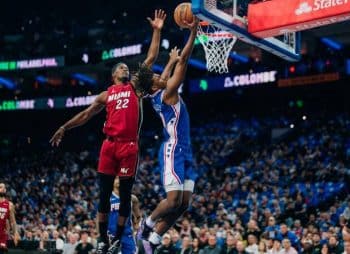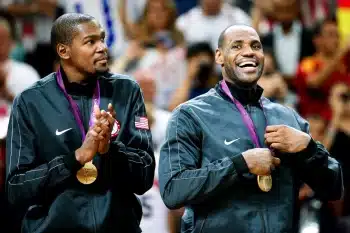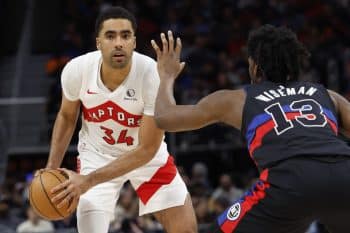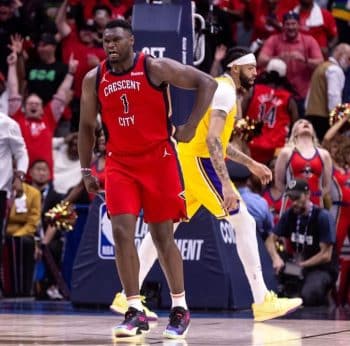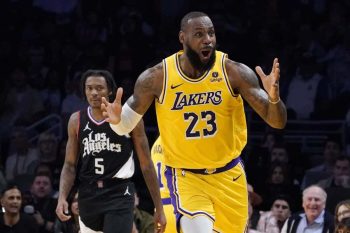NBA
Knicks Should Steer Clear of Kemba

Kemba Walker is better than any point guard the Knicks have had in a decade. He’s dynamic, disruptive and exciting on the offensive end of the floor. Last season, Walker was named to his first All-Star team and was one of just four players in the entire league to average at least 23 points, five assists and three made 3-pointers per game (James Harden, Steph Curry and Isaiah Thomas were the other three). Kemba is also a New York native, born in the Bronx back in May of 1990, and has had some incredibly memorable performances inside MSG.
Yet, with all that said, the Knicks should not trade away draft picks or young players for Kemba Walker.
Last Friday, ESPN’s Adrian Wojnarowski reported that the Hornets had made Walker available in trade discussions. This created a buzz in New York, as Knicks fans weighed the pros and cons of trading the homegrown star.
Although many overzealous fans are willing to abandon a patient approach at the first opportunity to add a high-profile player, the Knicks would be foolish to even consider such a move.
Despite a hot start fueled by a favorable early-season schedule, New York is currently six games under .500 at 21-27. They are four games back of the eighth-seeded Sixers. Based on the current standings, the Knicks are just as close to having a top-five pick in the 2018 NBA draft as they are to the qualifying for the postseason (New York is four games ahead of the Phoenix Suns, who currently have the fifth worst record in the NBA). Despite the recent struggles of the squads atop the Eastern Conference (the Cavs and Celtics are a combined 3-10 over their last 13 games), the Knicks are nowhere near being competitive with the top teams in the league. New York won’t be close to that elite level next season either. The addition of Walker would not change that fact.
Instead, it would merely push the Knicks closer to the middle of the pack, the NBA’s dreaded no man’s land: Not good enough to advance past the first round of the postseason, but not bad enough to land a top lottery pick. It’s a situation the Knicks have found themselves in far too often over the last two decades. At times, New York has talked about rebuilding, but they have been unable to remain patient enough to rebuild the right way.
Here’s a sobering fact: Dating back to the start of the 2001-2002 season, the Knicks have the been the worst team in the sport. Yes, with a cumulative record of 549-795, their winning percentage (.408) ranks dead last among non-expansion franchises. The only team with fewer wins over the previous 17 years is the Charlotte Hornets/Bobcats, who were re-established in 2004.
The primary reason for the Knicks’ continued failure is their refusal to commit to competently constructing a roster. In the past, even after they had taken a couple of steps in the right direction, they would scrap the plan and change direction mid-course. We’ve seen it time and time again; trading away the future for a big-name player, or spending far room much of the salary cap on an offensively gifted free agent.
The Knicks are currently on relatively firm footing, and could be on their way to building a competitive team. For starters, they have Kristaps Porzingis. He is the foundation, the building block upon which a contender can be created. You need at least one All-NBA caliber player to be a truly elite NBA team, and KP has that potential. The Knicks also own all of their future first-round draft picks. As we know, that hasn’t always been the case in New York. In fact, the Knicks haven’t been able to use first-round picks in back-to-back drafts since 2008 and 2009. It is imperative that the Knicks hold onto their future selections. Especially with the stagnating salary cap, it’s crucial to be able to have rotation players locked into rookie-scale contracts.
Speaking of the salary cap, the contracts that the Hornets want to attach to Kemba Walker in any potential deal is another major reason why the Knicks should stay far away. Walker is the carrot Charlotte is dangling in order to get another team to swallow the bloated salary of Marvin Williams, Cody Zeller, Michael Kidd-Gilchrist or Nicolas Batum.
The Knicks need to keep their cap clean going forward, so they can flesh out the rest of the roster around Porzingis and Frank Ntilikina.
Yes, keeping Frank Ntilikina in New York should be a priority as well. Ntilikina has struggled mightily on the offensive end over the first few months of his rookie campaign, and there is no denying that. His inefficiency has been staggering; his percentages are horrendous. However, his mechanics are solid and his body of work in France and international competitions suggest that it’s only a matter of time before his shots start falling. Plenty of stars have struggled as rookies transitioning into the NBA, especially those that have entered the league as teenagers. Keep in mind, Frank is the second youngest player in the league this season.
Moreover, Ntilikina’s defense has been impressive since he first stepped foot on an NBA court. His combination of length and athleticism on the perimeter are already giving opposing point guards headaches. As he puts on weight and strengthens his core, he will become an even feared defender. There will be plenty of bumps in the road, but Ntilikina’s upside is undeniable.
Trading away a young, promising, defensive-minded point guard for Kemba Walker would provide a short-term benefit, but wouldn’t serve the best interests of the franchise in the long run. Arguably the most appealing aspect of trading for Walker is having him at an under-market salary through the end of the 2018-19 season. However, as noted above, the Knicks aren’t going to make noise next season even with Kemba. Then, come July of 2019, they would have to re-sign him with a significant raise. The thought of handing $100-plus million to a 29-year old Kemba Walker is not appealing.
Instead of trying to trade away young players or draft picks for veterans, the Knicks should be trying to trade their veterans for young players and picks.
Incredibly, New York has not received a first-round draft pick in a trade since 2005, when they agreed to take on the bloated salary of Malik Rose from the Spurs. Over the last seven years, the Knicks have traded away four first-rounders, the maximum allowable amount under the league’s “Stepien rule.” They have not owned the rights to both their first and second-round picks in the same draft since 2003.
Fortunately, it appears the Knicks president Steve Mills and GM Scott Perry are taking a prudent approach to the upcoming trade deadline. According to Ian Begley of ESPN, “opposing executives have gotten the impression that the Knicks are opposed to trading draft picks or taking on a significant amount of salary unless it brings back a transformative player.”
Kemba Walker is not a transformative player. The Knicks would be wise to sit tight, protecting their picks and cap space so they can properly build around Porzingis.
